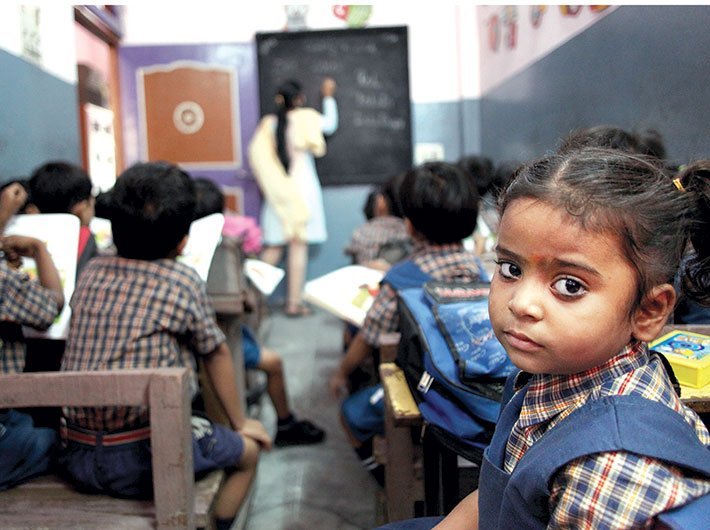Changing eco-system and technological innovations are making it easier, more effective
The number of social innovators and entrepreneurs has considerably increased recently in India. The idea of social entrepreneurship, which aspires to provide novel solutions for the world's most critical social issues, is now receiving more attention.
Challenges like overworked healthcare, long-term unemployment, education and skill development, lack of access to necessities like food and water, climate change, pollution and many more are such pressing issues that they need an altogether fresh approach to problem-solving. A single corporate, government or social sector organisation cannot solve these vast complex problems by operating in silos.
As per the Deloitte Global 2022 Survey, Gen Zs and Millennials are striving for balance and advocating for change. New-age enterprises, corporations, and NGOs are open to newer ideas to build collectively. Co-creation of large social projects embraces a fundamental transformation in how corporations, philanthropists, NGOs, governmental bodies, special purpose organisations and the public engage.
While the traditional social projects approach relied more on a direct, more straightforward and assuring route to deploying quick impact solutions, the current age social ecosystem is equipped to visualise the magnitude of requirements to address the large-scale challenges. With technology platforms, social purpose organisations can function seamlessly, upscale and build capacities to handle the more significant challenges.
Any collaborative project can be classified into two stages:
• Joining forces: where the core partners map out the vision, set and agree on its strategy, and decide how it will organise itself and make decisions
• Working together: where the partners discuss and execute the strategy and track progress against the goals being achieved
Advancing the social project ecosystem, collaborative projects can now necessitate the fusion of the heart and mind. Keeping the core ethos of sustainable impact, digital infrastructure can help develop and manage a 360-degree comprehensive framework to solve complex problems with a strategic approach.
A collaborative process is where participants from various sectors, including businesses, non-profits, financial institutions and governmental agencies, come together to co-design and co-implement new or advanced projects that serve the society at large on shared goals and visions.
Significant scale and impact are priorities for social entrepreneurs and organisations working in the social sector. Cross-sector co-creation is another scope where innovative projects may be deployed using the digital infrastructure. Alignment of goals, identification of suitable partners in the various stages of the project journey, overcoming the perceived pitfalls and realising collaboration's potential to impact many more lives positively is essential to future projects.
Charitable trusts, Fund-raisers, non-profits, and NGOs can now leverage technology solutions to collaborate with a broader audience. Corporations strive for better governance and more creative ways to utilise their CSR budgets. Collaborating with the government, companies, and NGOs can help create a significant scale impact on the ecosystem. Large-scale projects have a higher impact ratio as collaborative efforts and wisdom often tend to have large-scale effects.
Businesses are searching for new markets and strategies for staying current and competitive, while public institutions are looking for inexpensive methods. Together, these varied factors can have a social and economic impact on society with the right collaborations for the general benefit of the masses. Blockchain technology can enable new paradigms for change by increasing knowledge and assisting social groups in developing shared systems of record that satisfy the needs of corporate donors.
Large-impact projects supported by the digital infrastructure can now be co-created with seamless collaboration with NGOs, corporate foundations, high net-worth individuals (HNIs), ultra HNIs, philanthropists, governmental bodies, implementation partners and citizens.
With a well-defined scoring engine, large-scale projects can gain public visibility of sponsors, events and impact, leading to achieving the goals. Complete transparency with regular audits, smart contracts and video-based proof and communication and drive seamless value exchange.
The challenge of uniting all the stakeholders to achieve a joint mission is often about accessing various tools that help track developments and expenditures to assess and converge on a common ground. With the typical structure of India's collaboratives, a majority of stakeholders, not just funders but also implementation groups, the government, mediators, and technical specialists often tend to have a set of minor allied parties involved in the project.
Understanding and deploying various partner responsibilities, unity on a strategy, and forging an agreement, where any mid-flight adjustments are not a roadblock anymore, in the overall continuity of the social impact project is a new way forward. Critical features like real-time updates and reporting from the field, the next-gen social platforms assist with artificial intelligence, blockchain, enterprise analytics, intelligent matchmaking, video, and SaaS between the various stakeholders bring in transparency and sustainable impact creation. Using cutting-edge technologies is crucial for 21st-century organisations to achieve and sustain significant social and economic impact.
Society cooperation; curating well-defined initiatives focused on developing larger projects for the ecosystem is the need of the hour. Co-created programmes lead to higher ownership and support the longevity of goals—standardisation of operations and implementing more sustainable solutions. A true co-creation across sectors shall significantly impact the participants and create social and commercial value. Digitally enabled, the progressive structure also encourages global players to work in closer partnerships, leading to a grander scale for such initiatives and, therefore, a more significant impact.
Naik is CEO & co-founder, Metta Social
